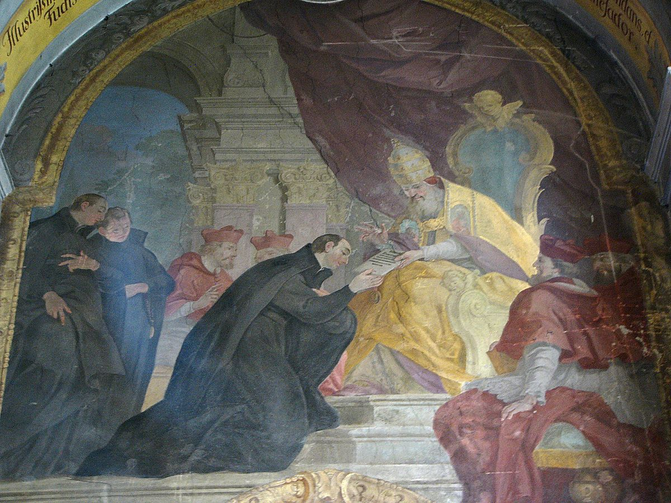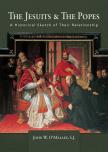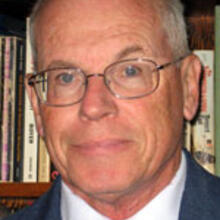that take counsel, but not of Me;
and that cover with a covering, but not of My Spirit
that they may add sin to sin:
2 that walk to go down into Egypt,
and have not asked at My mouth;
to strengthen themselves in the strength of Pharaoh,
and to trust in the shadow of Egypt!
3 Therefore shall the strength of Pharaoh be your shame,
and the trust in the shadow of Egypt your confusion....
For the Egyptians shall help in vain, and to no purpose:
thereforehave I cried concerning this,
Theirstrength is to sit still.
Now go, write it before them in a table, and note it in a book,
that it may be for the time to come for ever and ever:
9 that this is a rebellious people, lying children,
children that will not hear the law of the Lord:
9 that this is a rebellious people, lying children,
children that will not hear the law of the Lord:
which say to the seers, See not;
and to the prophets, Prophesy not unto us right things,
speak unto us smooth things,
prophesy deceits:
11 get you out of the way,
turn aside out of the path,
cause the Holy One of Israel to cease from before us.
12 Wherefore thus saith the Holy One of Israel,
Because ye despise this word,
and trust in oppression and perverseness,
and stay thereon:...
Behold, the name of the Lordcometh from far,
burning with his anger,
and the burden thereof isheavy:
his lips are full of indignation,
and his tongue as a devouring fire:
28 and his breath, as an overflowing stream,
shall reach to the midst of the neck,
to sift the nations with the sieve of vanity:
and there shall be a bridle in the jaws of the people,
causing them to err.
(Isa.30:1-3,7-13,27,28).
This week I tried to help an ex-Adventist see more clearly the biblical essential of the Law of God. But when the flush of throwing off the yoke of Christ gets absorbed deeply, and the captivity under the Law is removed by Baalpeor celebration, then restoring the original tastes for godliness gets difficult and iffy. The thrill of nakedness holds the person in a strong grip.
"Behold, I come as a thief. Blessed is he that watcheth, and keepeth his garments, lest he walk naked, and they see his shame." (Rev. 16:15).
When the Protestant churches adopted the error that the "holy, and just, and good" (Rom. 7:12) Law of God was nailed to the cross, they deceived themselves, and landed themselves squarely into the realm of spiritualism.
Spiritualism is lawlessness. "Thou shalt not surely die" doesn't sound like lawlessness, but it dared to controvert the sure word of the Lord. That act led headlong into total perdition, which is lawlessness.
"Therefore hell hath enlarged herself,
and opened her mouth without measure:
and their glory, and their multitude, and their pomp,
and he that rejoiceth, shall descend into it." (Isa. 5:14).
According to the 2nd and 3rd trumpets of Revelation 8, when the Protestant churches rejected Mount Sinai because they couldn't refute the new Sabbath reform then they became poisoned with the bitter wine of wormwood. That wormwood came from a star called Wormwood. And if you connect this with the Old Testament third angel's message, you see that the wormwood is spiritualism, or the gods of these nations.
"Lest there should be among you man, or woman, or family, or tribe, whose heart turneth away this day from the Lord our God, to go and serve the gods of these nations; lest there should be among you a root that beareth gall and wormwood; 19 and it come to pass, when he heareth the words of this curse, that he bless himself in his heart, saying, I shall have peace, though I walk in the imagination of mine heart, to add drunkenness to thirst: 20 the Lord will not spare him, but then the anger of the Lord and his jealousy shall smoke against that man, and all the curses that are written in this book shall lie upon him, and the Lord shall blot out his name from under heaven. 21And the Lord shall separate him unto evil out of all the tribes of Israel, according to all the curses of the covenant that are written in this book of the law: So that the generation to come of your children that shall rise up after you, and the stranger that shall come from a far land, shall say, when they see the plagues of that land, and the sicknesses which the Lord hath laid upon it; 23 and that the whole land thereof is brimstone, and salt, andburning, that it is not sown, nor beareth, nor any grass groweth therein, like the overthrow of Sodom, and Gomorrah, Admah, and Zeboim, which the Lord overthrew in his anger, and in his wrath: 24 even all nations shall say, Wherefore hath the Lord done thus unto this land? what meaneth the heat of this great anger? 25 Then men shall say, Because they have forsaken the covenant of the Lord God of their fathers, which he made with them when he brought them forth out of the land of Egypt: 26 for they went and served other gods, and worshipped them, gods whom they knew not, and whom he had not given unto them: 27 and the anger of the Lord was kindled against this land, to bring upon it all the curses that are written in this book." (Deut. 29:18-28).
The crux of the last plagues is that God has a group that have been purified, and that the whole Protestant world had followed after the false gods and is drunken with the spiritualistic and despotic power of Jesuitism.
This is where Evangelicalism comes into play. Any form of lawless grace flows from a wicked spring. Spiritual Formation in any form comes straight from the bottomless pit of Hades and goes into the deepest occultism.
This is what the 5th trumpet is about. Notice the key words of Revelation 9: "smoke", "fire", "brimstone" (or, jacinth, the color of burning brimstone"), and "torment". These make up the 3rd angel's warning, and bears a close resemblance to Moses' threatening warning on Deuteronomy 29.
Both warnings describe the twisted minds of the devil possessed. Beside, the world going into total chaos, the worst of the stress will come from Satan's full habitation of a world of rebellious minds. God is exonerated by His sealed children, because they have cooperated in His work of humbling them and inscribing His Law in them. The hour of His judgment has come.
So, the great need to warn our brother Sunday worshipers continues.
"They that forsake the law praise the wicked: but such as keep the law contend with them." (Prov. 28:4).
"He that turneth away his ear from hearing the law, even his prayer shall be abomination." (Prov. 28:9).
"With the mind I myself serve the law of God; but with the flesh the law of sin." (Rom. 7:25).
"the carnal mind is enmity against God: for it is not subject to the law of God, neither indeed can be. So then they that are in the flesh cannot please God." (Rom. 8:7,8).
"Do we then make void the law through faith? God forbid: yea, we establish the law." (Rom. 3:31).
"Who is blind, but My Servant?
or deaf, as My Messenger that I sent?
who is blind as He that isperfect,
and blind as the Lord’s servant?
20 seeing many things, but Thou observest not;
opening the ears, but He heareth not.
21 The Lord is well pleased for His righteousness’ sake;
He will magnify the law, and make it honourable."(Isa. 42:19-21).
"Think not that I am come to destroy the law, or the prophets: I am not come to destroy, but to fulfil. 18 For verily I say unto you, Till heaven and earth pass, one jot or one tittle shall in no wise pass from the law, till all be fulfilled. 19 Whosoever therefore shall break one of these least commandments, and shall teach men so, he shall be called the least in the kingdom of heaven: but whosoever shall do and teach them, the same shall be called great in the kingdom of heaven. 20 For I say unto you, That except your righteousness shall exceed the righteousness of the scribes and Pharisees, ye shall in no case enter into the kingdom of heaven."(Matt.
5:17-20).
And here at the end of the world, the Law of God is the testimony of Jesus, the Spirit of Prophecy.
I'ma i
and to the prophets, Prophesy not unto us right things,
speak unto us smooth things,
prophesy deceits:
11 get you out of the way,
turn aside out of the path,
cause the Holy One of Israel to cease from before us.
12 Wherefore thus saith the Holy One of Israel,
Because ye despise this word,
and trust in oppression and perverseness,
and stay thereon:...
Behold, the name of the Lordcometh from far,
burning with his anger,
and the burden thereof isheavy:
his lips are full of indignation,
and his tongue as a devouring fire:
28 and his breath, as an overflowing stream,
shall reach to the midst of the neck,
to sift the nations with the sieve of vanity:
and there shall be a bridle in the jaws of the people,
causing them to err.
(Isa.30:1-3,7-13,27,28).
This week I tried to help an ex-Adventist see more clearly the biblical essential of the Law of God. But when the flush of throwing off the yoke of Christ gets absorbed deeply, and the captivity under the Law is removed by Baalpeor celebration, then restoring the original tastes for godliness gets difficult and iffy. The thrill of nakedness holds the person in a strong grip.
"Behold, I come as a thief. Blessed is he that watcheth, and keepeth his garments, lest he walk naked, and they see his shame." (Rev. 16:15).
When the Protestant churches adopted the error that the "holy, and just, and good" (Rom. 7:12) Law of God was nailed to the cross, they deceived themselves, and landed themselves squarely into the realm of spiritualism.
Spiritualism is lawlessness. "Thou shalt not surely die" doesn't sound like lawlessness, but it dared to controvert the sure word of the Lord. That act led headlong into total perdition, which is lawlessness.
"Therefore hell hath enlarged herself,
and opened her mouth without measure:
and their glory, and their multitude, and their pomp,
and he that rejoiceth, shall descend into it." (Isa. 5:14).
According to the 2nd and 3rd trumpets of Revelation 8, when the Protestant churches rejected Mount Sinai because they couldn't refute the new Sabbath reform then they became poisoned with the bitter wine of wormwood. That wormwood came from a star called Wormwood. And if you connect this with the Old Testament third angel's message, you see that the wormwood is spiritualism, or the gods of these nations.
"Lest there should be among you man, or woman, or family, or tribe, whose heart turneth away this day from the Lord our God, to go and serve the gods of these nations; lest there should be among you a root that beareth gall and wormwood; 19 and it come to pass, when he heareth the words of this curse, that he bless himself in his heart, saying, I shall have peace, though I walk in the imagination of mine heart, to add drunkenness to thirst: 20 the Lord will not spare him, but then the anger of the Lord and his jealousy shall smoke against that man, and all the curses that are written in this book shall lie upon him, and the Lord shall blot out his name from under heaven. 21And the Lord shall separate him unto evil out of all the tribes of Israel, according to all the curses of the covenant that are written in this book of the law: So that the generation to come of your children that shall rise up after you, and the stranger that shall come from a far land, shall say, when they see the plagues of that land, and the sicknesses which the Lord hath laid upon it; 23 and that the whole land thereof is brimstone, and salt, andburning, that it is not sown, nor beareth, nor any grass groweth therein, like the overthrow of Sodom, and Gomorrah, Admah, and Zeboim, which the Lord overthrew in his anger, and in his wrath: 24 even all nations shall say, Wherefore hath the Lord done thus unto this land? what meaneth the heat of this great anger? 25 Then men shall say, Because they have forsaken the covenant of the Lord God of their fathers, which he made with them when he brought them forth out of the land of Egypt: 26 for they went and served other gods, and worshipped them, gods whom they knew not, and whom he had not given unto them: 27 and the anger of the Lord was kindled against this land, to bring upon it all the curses that are written in this book." (Deut. 29:18-28).
The crux of the last plagues is that God has a group that have been purified, and that the whole Protestant world had followed after the false gods and is drunken with the spiritualistic and despotic power of Jesuitism.
This is where Evangelicalism comes into play. Any form of lawless grace flows from a wicked spring. Spiritual Formation in any form comes straight from the bottomless pit of Hades and goes into the deepest occultism.
This is what the 5th trumpet is about. Notice the key words of Revelation 9: "smoke", "fire", "brimstone" (or, jacinth, the color of burning brimstone"), and "torment". These make up the 3rd angel's warning, and bears a close resemblance to Moses' threatening warning on Deuteronomy 29.
Both warnings describe the twisted minds of the devil possessed. Beside, the world going into total chaos, the worst of the stress will come from Satan's full habitation of a world of rebellious minds. God is exonerated by His sealed children, because they have cooperated in His work of humbling them and inscribing His Law in them. The hour of His judgment has come.
So, the great need to warn our brother Sunday worshipers continues.
"They that forsake the law praise the wicked: but such as keep the law contend with them." (Prov. 28:4).
"He that turneth away his ear from hearing the law, even his prayer shall be abomination." (Prov. 28:9).
"With the mind I myself serve the law of God; but with the flesh the law of sin." (Rom. 7:25).
"the carnal mind is enmity against God: for it is not subject to the law of God, neither indeed can be. So then they that are in the flesh cannot please God." (Rom. 8:7,8).
"Do we then make void the law through faith? God forbid: yea, we establish the law." (Rom. 3:31).
"Who is blind, but My Servant?
or deaf, as My Messenger that I sent?
who is blind as He that isperfect,
and blind as the Lord’s servant?
20 seeing many things, but Thou observest not;
opening the ears, but He heareth not.
21 The Lord is well pleased for His righteousness’ sake;
He will magnify the law, and make it honourable."(Isa. 42:19-21).
"Think not that I am come to destroy the law, or the prophets: I am not come to destroy, but to fulfil. 18 For verily I say unto you, Till heaven and earth pass, one jot or one tittle shall in no wise pass from the law, till all be fulfilled. 19 Whosoever therefore shall break one of these least commandments, and shall teach men so, he shall be called the least in the kingdom of heaven: but whosoever shall do and teach them, the same shall be called great in the kingdom of heaven. 20 For I say unto you, That except your righteousness shall exceed the righteousness of the scribes and Pharisees, ye shall in no case enter into the kingdom of heaven."(Matt.
5:17-20).
And here at the end of the world, the Law of God is the testimony of Jesus, the Spirit of Prophecy.
I'ma i













